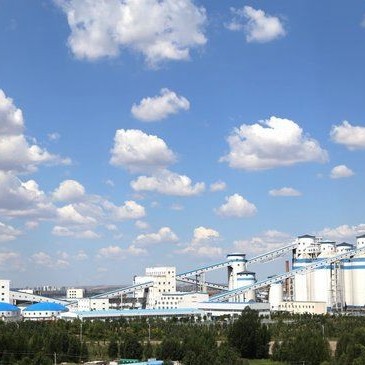
-
 Afrikaans
Afrikaans -
 Albanian
Albanian -
 Amharic
Amharic -
 Arabic
Arabic -
 Armenian
Armenian -
 Azerbaijani
Azerbaijani -
 Basque
Basque -
 Belarusian
Belarusian -
 Bengali
Bengali -
 Bosnian
Bosnian -
 Bulgarian
Bulgarian -
 Catalan
Catalan -
 Cebuano
Cebuano -
 China
China -
 China (Taiwan)
China (Taiwan) -
 Corsican
Corsican -
 Croatian
Croatian -
 Czech
Czech -
 Danish
Danish -
 Dutch
Dutch -
 English
English -
 Esperanto
Esperanto -
 Estonian
Estonian -
 Finnish
Finnish -
 French
French -
 Frisian
Frisian -
 Galician
Galician -
 Georgian
Georgian -
 German
German -
 Greek
Greek -
 Gujarati
Gujarati -
 Haitian Creole
Haitian Creole -
 hausa
hausa -
 hawaiian
hawaiian -
 Hebrew
Hebrew -
 Hindi
Hindi -
 Miao
Miao -
 Hungarian
Hungarian -
 Icelandic
Icelandic -
 igbo
igbo -
 Indonesian
Indonesian -
 irish
irish -
 Italian
Italian -
 Japanese
Japanese -
 Javanese
Javanese -
 Kannada
Kannada -
 kazakh
kazakh -
 Khmer
Khmer -
 Rwandese
Rwandese -
 Korean
Korean -
 Kurdish
Kurdish -
 Kyrgyz
Kyrgyz -
 Lao
Lao -
 Latin
Latin -
 Latvian
Latvian -
 Lithuanian
Lithuanian -
 Luxembourgish
Luxembourgish -
 Macedonian
Macedonian -
 Malgashi
Malgashi -
 Malay
Malay -
 Malayalam
Malayalam -
 Maltese
Maltese -
 Maori
Maori -
 Marathi
Marathi -
 Mongolian
Mongolian -
 Myanmar
Myanmar -
 Nepali
Nepali -
 Norwegian
Norwegian -
 Norwegian
Norwegian -
 Occitan
Occitan -
 Pashto
Pashto -
 Persian
Persian -
 Polish
Polish -
 Portuguese
Portuguese -
 Punjabi
Punjabi -
 Romanian
Romanian -
 Russian
Russian -
 Samoan
Samoan -
 Scottish Gaelic
Scottish Gaelic -
 Serbian
Serbian -
 Sesotho
Sesotho -
 Shona
Shona -
 Sindhi
Sindhi -
 Sinhala
Sinhala -
 Slovak
Slovak -
 Slovenian
Slovenian -
 Somali
Somali -
 Spanish
Spanish -
 Sundanese
Sundanese -
 Swahili
Swahili -
 Swedish
Swedish -
 Tagalog
Tagalog -
 Tajik
Tajik -
 Tamil
Tamil -
 Tatar
Tatar -
 Telugu
Telugu -
 Thai
Thai -
 Turkish
Turkish -
 Turkmen
Turkmen -
 Ukrainian
Ukrainian -
 Urdu
Urdu -
 Uighur
Uighur -
 Uzbek
Uzbek -
 Vietnamese
Vietnamese -
 Welsh
Welsh -
 Bantu
Bantu -
 Yiddish
Yiddish -
 Yoruba
Yoruba -
 Zulu
Zulu
fiberglass pipe
The Marvel of Fiberglass Pipes An Innovative Solution for Modern Needs
In the evolution of industrial materials, fiberglass has emerged as a remarkable innovation, particularly in the form of fiberglass pipes. These pipes are changing the landscape of plumbing, construction, and various industrial applications, thanks to their unique properties and advantages. As industries seek more efficient and sustainable solutions, fiberglass pipes stand out as a game changer.
What are Fiberglass Pipes?
Fiberglass pipes are made from a composite material consisting of glass fibers and resin. This combination provides strength, durability, and resistance to a variety of environmental factors. They are commonly used for transporting liquids and gases in applications ranging from water treatment to chemical processing and oil transportation.
Advantages of Fiberglass Pipes
1. Corrosion Resistance One of the most significant benefits of fiberglass pipes is their resistance to corrosion. Unlike traditional metal pipes, fiberglass does not rust or corrode when exposed to harsh chemicals, reducing maintenance costs and increasing longevity. This characteristic is particularly beneficial in chemical processing facilities and wastewater treatment plants, where corrosive substances can significantly damage conventional piping materials.
2. Weight Efficiency Fiberglass pipes are considerably lighter than their metal or concrete counterparts. This lightweight nature makes them easier to handle and install, leading to reduced labor costs and shorter project timelines. Additionally, the reduced weight alleviates the burden on supporting structures, making fiberglass an excellent choice for overhead piping systems.
3. High Strength-to-Weight Ratio Despite being lightweight, fiberglass pipes boast a remarkable strength-to-weight ratio. This strength allows them to withstand high pressure and stress, making them suitable for various challenging environments. Their ability to hold up under extreme conditions ensures that they are reliable for both industrial and municipal applications.
4. Low Thermal Conductivity Fiberglass is an excellent insulator, which reduces heat transfer in systems transporting hot fluids. This low thermal conductivity helps in retaining the temperature of the fluids being transported, leading to energy savings. It also minimizes the risk of condensation, which can be problematic with metallic pipes.
fiberglass pipe

5. Flexibility in Design Fiberglass pipes can be manufactured in a variety of sizes and shapes to meet specific project requirements. This flexibility enables engineers and designers to create customized solutions that cater to unique applications, enhancing efficiency and effectiveness in plumbing and industrial systems.
Environmental Benefits
In today's world, sustainability is a critical concern, and fiberglass pipes excel in this area. Their long lifespan and resistance to corrosion mean that they require less frequent replacement, resulting in less waste. Additionally, fiberglass manufacturing processes are becoming increasingly eco-friendly, reducing the environmental footprint associated with their production.
Furthermore, the smooth inner surface of fiberglass pipes reduces friction, leading to lower energy consumption in fluid transport. This efficiency not only saves costs but also minimizes the carbon footprint of operations that rely on these systems.
Applications of Fiberglass Pipes
The versatility of fiberglass pipes makes them suitable for a wide range of applications. They are commonly used in
- Water Supply Systems Providing safe and reliable transportation of potable water. - Wastewater Management Handling sewage and industrial waste without the risk of corrosion. - Oil and Gas Used for transporting oil, gas, and other hydrocarbons safely. - Agriculture Irrigation systems benefit from the lightweight, durable characteristics of fiberglass.
Conclusion
In an era where innovation meets necessity, fiberglass pipes have established themselves as a vital component in various industries. Their unique combination of strength, corrosion resistance, weight efficiency, and environmental benefits make them an ideal choice for many applications. As industries continue to evolve and seek out sustainable solutions, the role of fiberglass pipes will undoubtedly expand, paving the way for more efficient infrastructure and enhanced environmental stewardship. By investing in fiberglass piping systems, organizations can ensure they are prepared to meet modern challenges while prioritizing the health of our planet.









